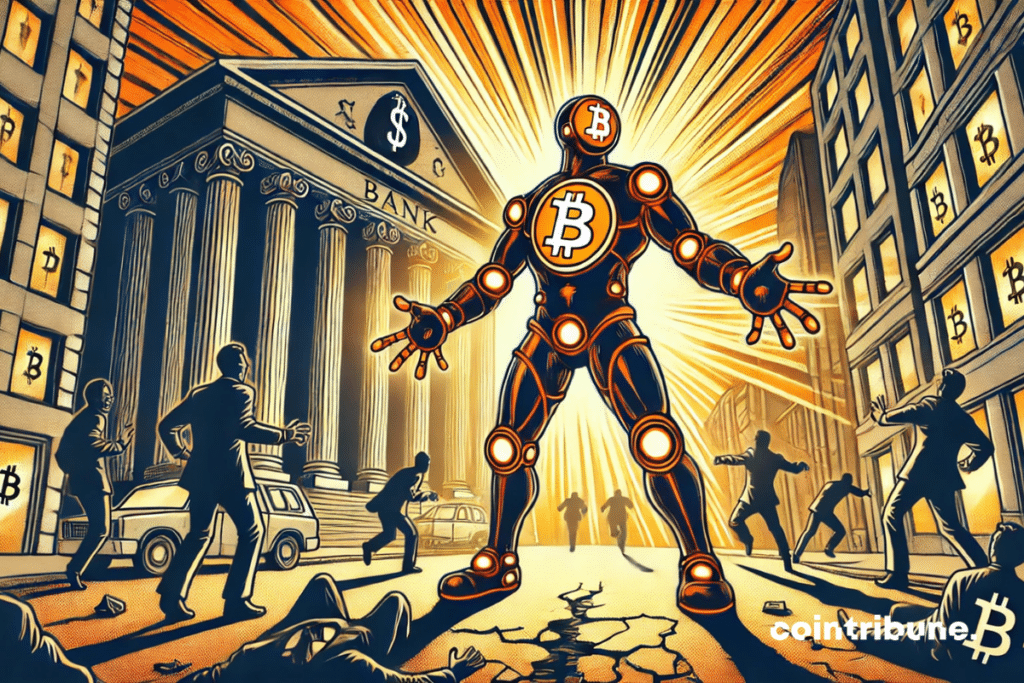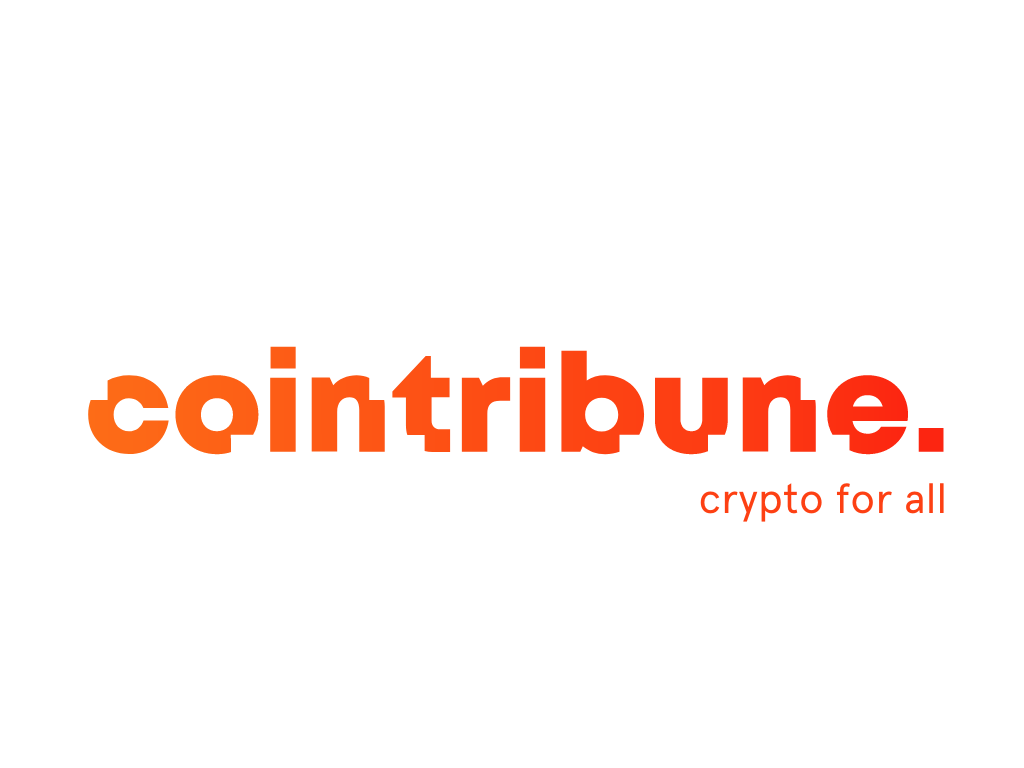Can Bitcoin Bring Down Banks?
0
0
Finance is undergoing a silent yet brutal metamorphosis. Bitcoin, born in the shadow of the 2008 crisis, today embodies a revolution that shakes the foundations of banks. Between promises of emancipation and technical challenges, its ascent raises questions: can it truly dethrone the giants of traditional finance? Far from clichés, let’s dive into an uncompromising analysis.

Bitcoin vs banks: a war of architectures
Bitcoin is based on a peer-to-peer network, without a conductor. Banks, on the other hand, function like centralized cathedrals, where each stone depends on a higher authority.
This structural divergence explains why Bitcoin is appealing: it replaces trust in institutions with irrefutable mathematics.
In 2021, El Salvador adopted Bitcoin as legal tender, despite criticism. The result? An economy less dependent on the dollar, but exposed to volatility.
Meanwhile, traditional banks, protected by state safety nets, withstand storms. Bitcoin offers risky freedom; banks, a corseted stability.
Bitcoin handles 7 transactions per second, compared to thousands for Visa. Solutions like Lightning Network are trying to bridge this gap, but the road remains long.
Banks, despite their heaviness, master the art of massive flows. An advantage that could erode if blockchain technology matures.
Bitcoin promises a bank account on a smartphone. Yet, 3 billion people still lack internet access. In sub-Saharan Africa, only 48% of adults own a mobile phone. Without digital infrastructure, the dream of inclusion remains a mirage.
Cross-border transfers via Bitcoin cost a few cents, compared to an average of 6% via traditional banks. But this saving masks a problem: the volatility of BTC can cancel out gains in just a few hours. Stablecoins attempt to address this, but their peg to traditional currencies perpetuates dependency on the current system.
Security: blockchain vs human psychology
The Bitcoin blockchain has never been hacked. But digital wallets, on the other hand, are vulnerable. In the first quarter of 2025, losses related to cryptocurrency platform hacks reached $1.63 billion.
Banks spend billions on cybersecurity, yet experience regular data breaches. In 2022, 74% of financial institutions reported an increase in attacks. Bitcoin eliminates intermediaries, but not human errors.
20% of bitcoins are locked in inaccessible wallets. A simple misplaced USB key, and fortunes evaporate. Banks, with their recovery procedures, offer a psychological security that Bitcoin cannot match.
Economic stability: the deflationary trap
Bitcoin is limited to 21 million units. A scarcity that attracts investors but poses a problem: how to manage an economy without monetary adjustment? Central banks use inflation as a tool; Bitcoin imposes a rigor incompatible with crises.
In 2024, 60% of BTC holders consider it as “digital gold.” Few use it to buy a coffee.
As long as it remains a speculative asset, its role as a daily currency will remain marginal. Banks, despite their flaws, retain the monopoly on everyday exchanges.
BlackRock and JPMorgan are integrating Bitcoin into their portfolios, but as an investment product, not as a currency. A hybrid adoption that reinforces the current system more than it dismantles it.
The EU adopted MiCA in 2023 to regulate cryptos. The United States oscillates between repression and innovation.
Without a clear framework, Bitcoin will never supplant banks. But excessive regulation could jeopardize its decentralized essence. Bitcoin will not kill banks. It forces them to evolve. Meanwhile, the tax framework is evolving. Here are the essential dates to remember regarding crypto and taxes in 2025.
0
0
 한 곳에서 모든 암호화폐, NFT 및 DeFi 를 관리하세요
한 곳에서 모든 암호화폐, NFT 및 DeFi 를 관리하세요시작하는 데 사용하는 포트폴리오를 안전하게 연결하세요.






